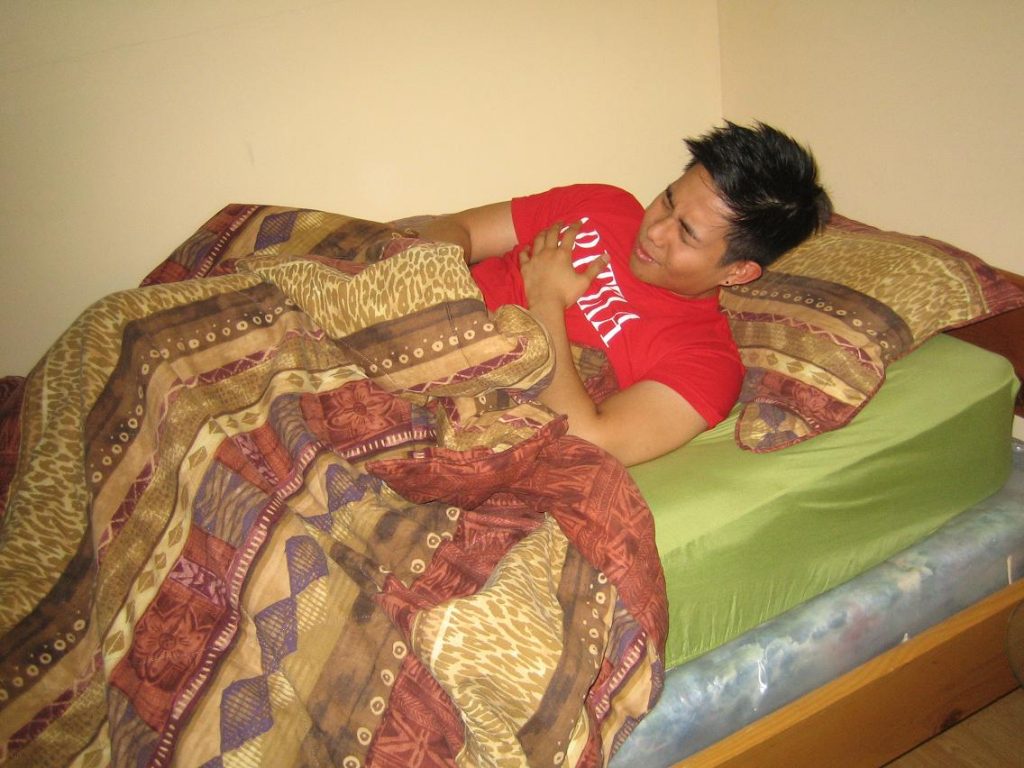Shortness of breath or dyspnea involves severe tightening of the chest, hunger for air and suffocation. Generally, working out, performing strenuous exercises, extreme temperatures and significant obesity can result to shortness of breath.
Symptoms of shortness of breath
- At first, feeling of lightheadedness due to exertion or exercise
- Rapid and shallow breathing
- Chest pain
- Pain during inspiration or pleurisy
- Dizziness
- Fainting
- In addition, wheezing
- Neck pain
Feeling of lightheadedness due to exertion or exercise. - Lastly, anxiousness
Causes
- Lack of physical activity and lack of exercise for the cardio-respiratory system so that the heart and lungs can function properly.
- Improper breathing techniques such as chest breathing where the chest moves upward and outward.
- Allergies and nasal or chest congestion
- Dysfunction of the vocal cords or paradoxical vocal cords
- Cardiovascular conditions
- Lastly, asthma including the exercise-induced type
Treatment
- Perform diaphragmatic breathing. Lie down on the back, place both hands on the abdomen and relax the muscles. Generally, breathe deeply through the nose and hold it for a couple of seconds and breathe out slowly through the mouth and empty the lungs completely. Perform the breathing exercise for 5-10 minutes at 2-3 times every day.
- Perform pursed-lip breathing to relieve shortness of breath. It slows down the pace of breathing and restores normal breathing. Sit and relax the neck and shoulder muscles. Keep the lips pressed together tightly, except the center. Inhale for a couple of seconds through the nose and slowly exhale through for 4 counts. Furthermore, continue to inhale and exhale for at least another 10 minutes.
- Steam inhalation keeps the nasal passages patent. Generally, the heat from the steam breaks and dissolves mucus for easy removal. Fill a bowl with hot water and mix a few drops of essential oil such as peppermint or eucalyptus. Inhale the steam by taking deep breaths for a few minutes to lessen the episodes of shortness of breath.
- Stop smoking to prevent difficulty breathing.
- Regular walking must be performed to improve stamina and lessen episodes of shortness of breath. Generally, walk at a moderate pace for at least 30-60 minutes at 5 times every week to increase stamina and enhance the metabolism of the body.
Tips
- Avoid sleeping in an extremely warm room to prevent worsening of the condition.
- Eat a variety of fruits and vegetables
- Drink plenty of fluids to keep the body well hydrated and for easy elimination of mucus.
- If there is difficulty sleeping at night, elevate the head with a couple of pillows or sleep in a recliner chair.
- Lastly, take short breaks at regular intervals whenever performing strenuous exercises to prevent shortness of breath.
Disclaimer / More Information
The material posted on this page on shortness of breath is for learning purposes only. Learn to recognize and manage respiratory issues including shortness of breath by taking a first aid and CPR class with one of our training providers.
FACT CHECK
https://www.webmd.com/lung/shortness-breath-dyspnea#1
https://www.healthline.com/health/home-treatments-for-shortness-of-breath
https://www.mayoclinic.org/symptoms/shortness-of-breath/basics/causes/sym-20050890

